
Wernicke-Korsakoff Syndrome (WKS) is a serious condition that arises as a consequence of chronic alcoholism and is classified under dementias caused by nutritional deficiencies. This syndrome is characterized by two interconnected, yet distinct phases: Wernicke encephalopathy and Korsakoff syndrome. Central to both phases is a severe deficiency of Vitamin B1, also known as thiamine. If left untreated, the consequences of this deficiency can be dire, leading to significant neurological impairments and potential fatality. Long-term inadequacy of thiamine results in irreparable brain damage, which may significantly alter an individual’s cognitive functions and overall mental health, underlining the importance of addressing both prevention and treatment of this condition.
Primary Causes
Alcoholism stands as the most prevalent cause of Wernicke-Korsakoff Syndrome, primarily because it hampers the body’s ability to absorb thiamine and other critical nutrients. The relationship between alcohol consumption and thiamine deficiency stems from the altered metabolism and dietary habits often seen in chronic alcohol users, which can lead to a myriad of nutritional deficits. However, other medical conditions also play a role in the development of WKS. For instance, individuals suffering from HIV/AIDS may experience malabsorption issues, further exacerbating thiamine deficiencies. Additional contributing factors include extensive body cancers, prolonged intravenous therapy that lacks adequate nutritional supplementation, and individuals on long-term dialysis treatment who may not receive sufficient thiamine through their diet.
Symptoms
The symptoms associated with Wernicke-Korsakoff syndrome can be categorized into two major groups corresponding to its two phases. Wernicke encephalopathy symptoms mainly encompass cognitive impairments and disruptions in motor coordination. Individuals may show signs such as leg tremors, ataxia (difficulty with balance and coordination), and visual disturbances like double vision and abnormal eye movements. These symptoms, particularly, intensify during the alcohol withdrawal phases. On the other hand, those presenting with Korsakoff syndrome often exhibit symptoms that include severe memory retention difficulties, confabulation (the creation of false memories without the intention to deceive), and hallucinations. Psychotic manifestations can also occur, making it challenging for these individuals to maintain a grip on reality.
Treatment
The cornerstone of treating Wernicke-Korsakoff syndrome lies in addressing and reversing thiamine deficiency. Historically, medical professionals recommended a daily dose of 100 mg of Vitamin B1 for treatment; however, evolving clinical guidelines have increased the initial dosage to 500 mg for the first two to three days. This regimen is typically administered intravenously or intramuscularly to ensure rapid absorption and effectiveness. Following this intensive initial treatment, physicians reassess the patient’s clinical condition. If a positive response is noted, the patient is placed on a maintenance dose of 250 mg daily for as long as there are observable improvements.
For those who achieve stability, transitioning to a preventative regimen of 50 to 100 mg of oral thiamine is advised. This maintenance strategy is crucial to minimize the risk of further neuronal damage, especially for individuals who persist in consuming alcohol or carry other risk factors for thiamine deficiency.
In conjunction with thiamine supplementation, there is emerging interest in the synergistic effects of specific herbs and nutrients that may provide additional benefits. These include Bacopa, known for cognitive enhancement; sage, which has neuroprotective qualities; turmeric, with its powerful anti-inflammatory properties; and ginkgo biloba, believed to improve cognitive function and circulation. Ginseng, beta-carotene, and omega-3 fatty acids are also highlighted for their potential roles in supporting brain health.
After a course of high-dose parenteral thiamine and following the resolution of acute Wernicke encephalopathy symptoms, if there is no significant improvement in the Korsakoff amnesic state or other cognitive deficits after a seven-day observational period, a focused strategy on preventing further secondary harm should be implemented.
Future Steps
The subsequent section will provide critical insights into the initial steps for offering comprehensive support aimed at facilitating successful disease reversal. This will include an in-depth examination of essential nutrients targeted for restoration and rebalancing, alongside alternative medicine approaches designed to manage withdrawal symptoms effectively. The goal is to reduce reliance on antidepressant medications and explore holistic strategies for recovery. A detailed, step-by-step guide for achieving a comprehensive reversal of symptoms may be extensively explored in the resource titled *Reverse Depression Naturally* This resource aims to empower individuals facing these challenges with knowledge and actionable strategies to reclaim their health and well-being.
References
1. Day E, Bentham P, Callaghan R, Kuruvilla T, George S. Thiamine for Wernicke-Korsakoff Syndrome in people at risk from alcohol abuse. Cochrane Database Syst Rev. 2004. CD004033.https://www.ncbi.nlm.nih.gov/pubmed/23818100
2. MedlinePlus.Wernicke-Korsakoff syndrome. https://medlineplus.gov/ency/article/000771.htm
3. Glen L Xiong, MD; Chief Editor: David Bienenfeld, MD . Wernicke-Korsakoff Syndrome Medication.Updated: Jun 09, 2017 https://emedicine.medscape.com/article/288379-medication
4. Thomson AD, Cook CC, Touquet R, Henry JA. The Royal College of Physicians report on alcohol: guidelines for managing Wernicke’s encephalopathy in the accident and Emergency Department. Alcohol. 2002 Nov-Dec. 37(6):513-21. https://www.ncbi.nlm.nih.gov/pubmed/12414541
5. Galvin R, Bråthen G, Ivashynka A, Hillbom M, Tanasescu R, Leone MA. EFNS guidelines for diagnosis, therapy and prevention of Wernicke encephalopathy. Eur J Neurol. 2010 Dec. 17(12):1408-18. https://www.ncbi.nlm.nih.gov/pubmed/20642790
6. Isenberg-Grzeda E, Kutner HE, Nicolson SE. Wernicke-Korsakoff-syndrome: under-recognized and under-treated. Psychosomatics. 2012 Nov-Dec. 53(6):507-16.
https://www.ncbi.nlm.nih.gov/pubmed/23157990
7. Home Remedies, Herbs, and Food Supplements for Wernicke-Korsakoff Syndrome. https://www.curesdecoded.com/conditions/wernicke-korsakoff-syndrome/335
Copyright © 2024 – All Rights Reserved – Michelle Honda Ph.D.
Announcement
Look for my new forthcoming books “Reverse Depression Naturally” (Spring 2020) “Reverse Inflammation Naturally” (May 31, 2017) “Reverse Thyroid Diseases Naturally” (June 2018) “Reverse Alzheimers/Dementia Naturally” (Nov.2018) “Reverse Heart Disease Naturally” (Jan.31, 2017) and “Reverse Gut Diseases Naturally Nov. 2016
Where to Purchase:
Reverse Gut Diseases Naturally Nov. 2016
Reverse Heart Disease Naturally Jan. 2017
Reverse Inflammation Naturally May 2017
Reverse Thyroid Disease Naturally June 28/2018
Reverse Alzheimers Disease Naturally Nov. 2018
Reverse Depression Naturally Spring 2020
Hatherleigh Press Page Buy Book RGDN
Local Book Stores in US and Canada
Disclaimer
While close attention was given to the accuracy of information in this article, the author accepts neither responsibility nor liability to any person with respect to injury, damage, loss or any circumstances involving alleged causes directly or indirectly related to the information in this article. The sole purpose is to educate and broaden ones awareness. This information is not meant to replace medical advice or services provided by a health care professional.





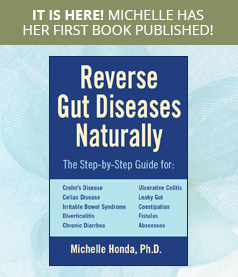

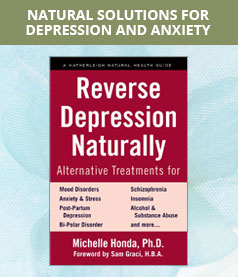
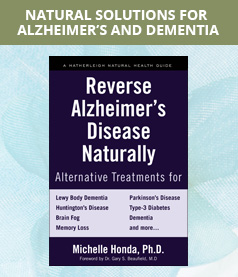
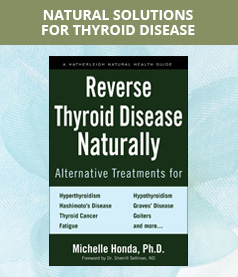

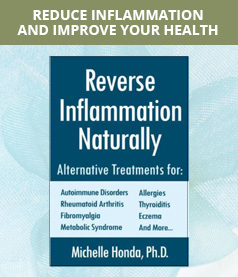
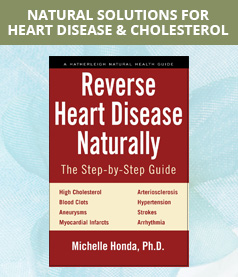
Follow Us!